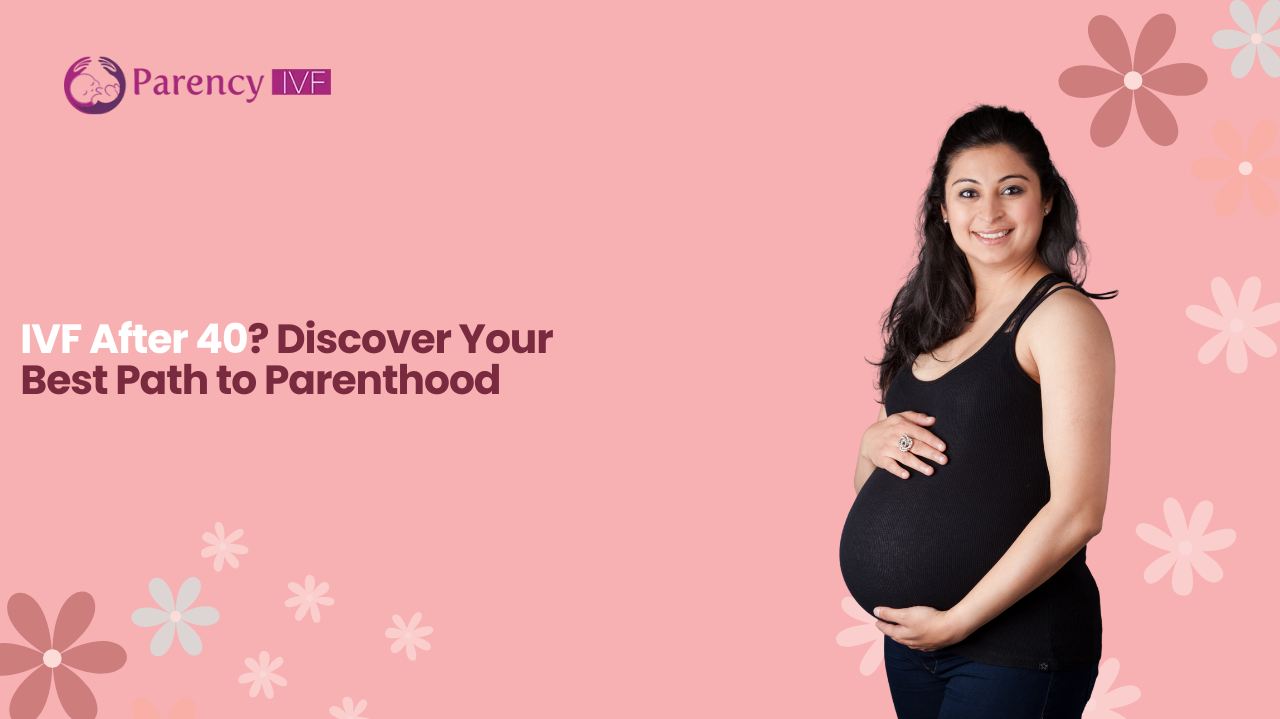



"Turning 40 doesn’t mean closing the door to motherhood." More women than ever are choosing to pursue pregnancy later in life, and IVF has become a hopeful and viable option for women in their 40s. While fertility naturally declines with age, advances in IVF technology and treatment methods make motherhood after 40 possible.
Read on to learn about the challenges women face when trying to conceive after 40, the available IVF options, and the steps you can take to maximise success.
After the age of 35, fertility begins to decline, with a more noticeable decrease in egg count and quality after 40. As women age, their ovarian reserve (the number of viable eggs) significantly reduces, making it harder to conceive. Also, older women have a higher risk of chromosomal abnormalities (e.g., Down syndrome) and miscarriage.
According to the American Society for Reproductive Medicine (ASRM), the IVF success rate after 40 is lower compared to younger women, but many still achieve pregnancy with the right treatment plan. Understanding how age impacts fertility is crucial in setting realistic expectations and exploring appropriate fertility options.
There are several IVF options for women over 40, and the right choice depends on individual health and fertility factors:
Each IVF option is tailored to the woman’s specific needs, and a fertility specialist can recommend the most suitable treatment based on your health and fertility goals.
IVF success rates after 40 vary significantly based on factors like egg quality, health, and the method used. Using donor eggs significantly improves success rates. In contrast, using your own eggs for IVF after 40 typically has a success rate of around 10%. It’s essential to remember that success is not guaranteed and depends on various factors beyond just age, such as overall health, ovarian reserve, and the quality of embryos.
While age plays an important role in fertility, there are steps women can take to improve their chances of successful IVF:
Motherhood after 40 is possible with the right guidance, treatment, and preparation. While fertility naturally declines with age, advances in IVF technology provide women in their 40s with viable options to achieve pregnancy. By understanding the challenges and exploring the available IVF treatments, women can make informed decisions that suit their unique health needs. Early intervention, proper lifestyle adjustments, and a tailored fertility plan can increase the chances of success and help women confidently pursue their journey to parenthood.
Thinking about starting your family after 40? At Parency IVF Hospital, we understand the unique challenges of fertility after 40, and our expert team is dedicated to providing personalised guidance and treatment options that work best for you. Whether you're considering IVF, donor eggs, or other fertility treatments, we’re here to help you navigate your journey with confidence. Schedule a consultation today and take the first step towards your dream of parenthood.